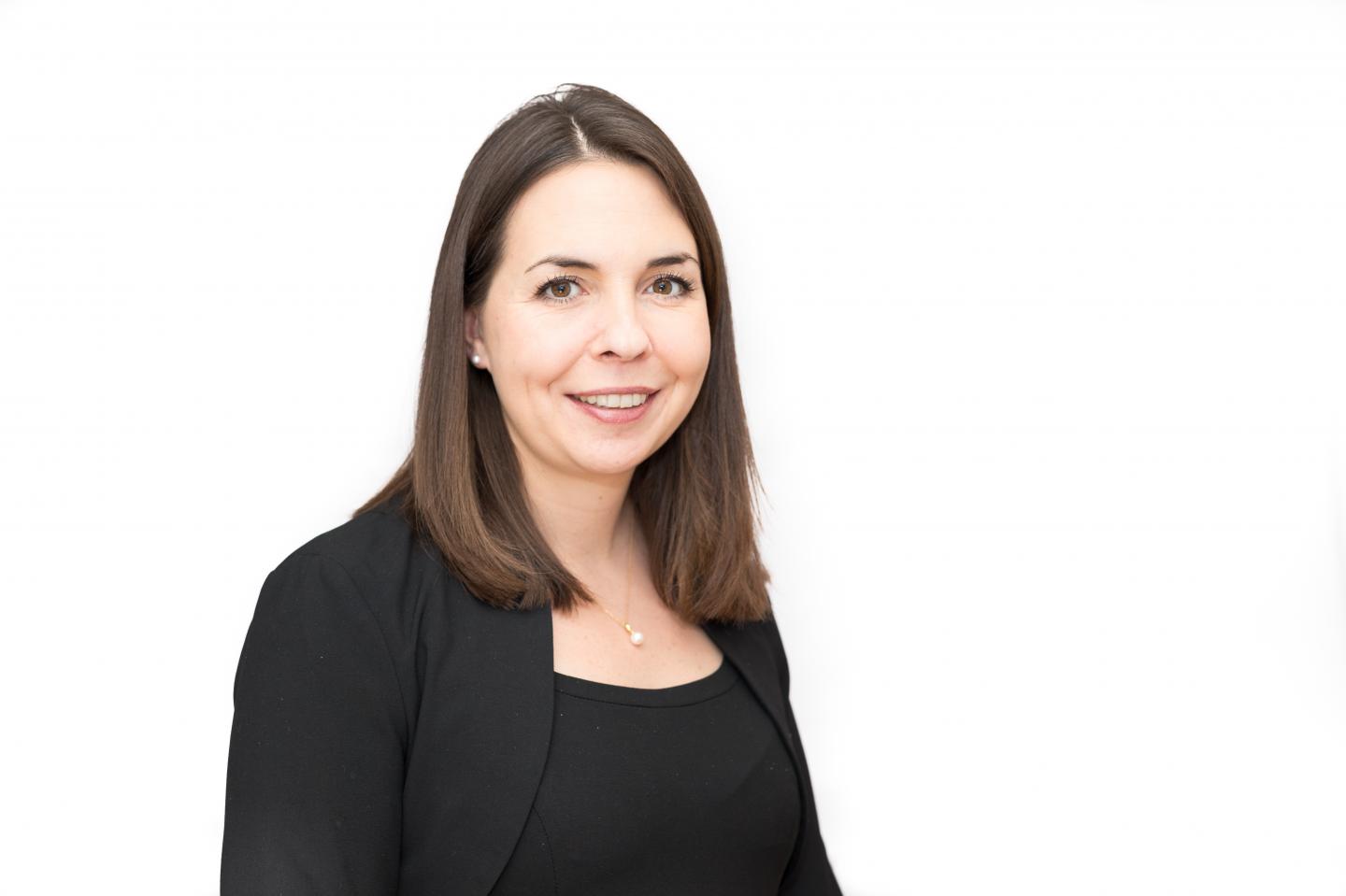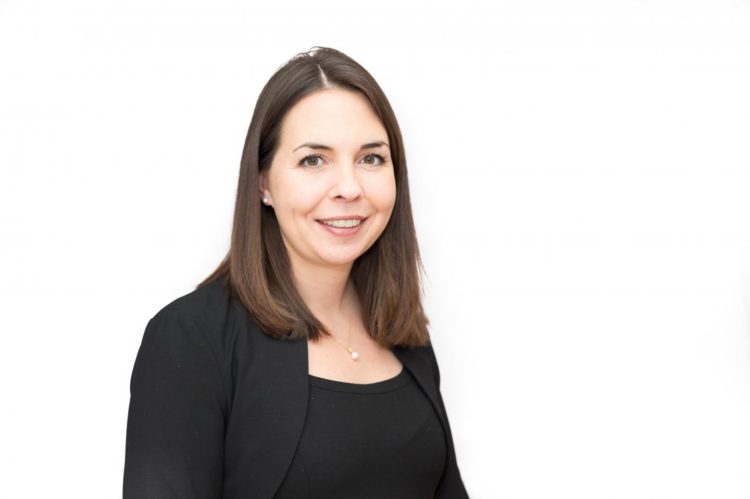Award for research on the correct passage of chromosomes

Credit: Paola Bertucci, Heidelberg
FRANKFURT am MAIN. Tomorrow, Dr. Judith Reichmann is receiving the €60,000 Paul Ehrlich and Ludwig Darmstaedter Prize for Young Researchers 2020. Dr. Reichmann, who works at the European Molecular Biology Laboratory (EMBL) in Heidelberg, researches the sources of chromosomal abnormalities in eggs and embryos of mice and their potential contribution to miscarriages. Mice synthesize a protein called Tex19.1, which maintains chromosome cohesion during the formation of oocytes and protects sperm cells from genetic damage. Without this protein, many mouse embryos have the wrong number of chromosomes and die after a few cell divisions. Errors also occur when the fertilized egg splits into two daughter cells. Reichmann was able to show that the paternal and maternal chromosome sets are not passed on via one but two mitotic spindles. As a result, the two sets of chromosomes sometimes drift apart during the cell division process so that the two-cell embryo ends up with two haploid cell nuclei instead of one diploid cell nucleus.
Reichmann discovered the dual spindle formation using light-sheet microscopy, which she developed further for this purpose. Mouse embryos do not tolerate continuous light exposure and therefore cannot be examined with a conventional microscope in high spatiotemporal resolution. This has precluded detailed live-imaging analyses in the past. In light-sheet microscopy, illumination occurs only in the plane that is actually being observed, while other parts of the embryo remain in the dark. “Judith Reichmann has shown how mice make sure that their offspring have the correct number of chromosomes, and only one cell nucleus. If this process fails, reproduction is compromised,” the Scientific Council´s statement reads. “Reichmann’s research may one day contribute to reducing the rate of miscarriages in women – provided that the sources of error identified in mice also apply to human reproduction”.
Reichmann discovered that the Tex19.1 protein indirectly stabilizes the chromosomes during meiosis. This process ensures that the gametes enter fertilization with a single set of chromosomes, for without this process the number of chromosomes would double with each generation. In oocytes, stabilization of the chromosomes is needed because meiosis is interrupted for a long time and is only completed upon fertilization. When Tex19.1 is missing, the chromosomes drift apart in the egg. As a result, many embryos among the offspring do not inherit the correct number of chromosomes.
Reichmann’s discovery of the dual spindles during the first cell division of the fertilized egg has toppled a textbook statement. Up to now, it had been assumed that the parental chromosomes merge in the fertilized egg and are distributed to the two daughter cells via a single spindle apparatus. Reichmann was able to show that the paternal and maternal chromosomes are grouped separately from each other in two spindles and are then distributed to the poles. Even in the nucleus of the two-cell embryo, maternal and paternal chromosomes initially remain in different hemispheres before they finally mix during subsequent cell divisions.
If Reichmann´s findings in mice also hold for human embryogenesis, and the human paternal and maternal chromosomes only merge in the two-cell embryo as well, a central assumption of the German Embryo Protection Act may have to be reconsidered. It states that human life begins when maternal and paternal chromosomes join; by this definition, the two-cell embryo rather than the zygote would take centre stage.
The Paul Ehrlich and Ludwig Darmstaedter Prize for Young Researchers has been awarded since 2006 in recognition of outstanding achievements in biomedical research.
###
Short biography of Dr. Judith Reichmann
Judith Reichmann (35) studied applied biology at the University of Applied Sciences Bonn-Rhein-Sieg. At the end of her studies, she moved to the University of Aberdeen in Scotland where she pursued a bachelor’s degree in genetics. At the University of Edinburgh, she completed her doctorate on the development of oocyte and sperm cells. Reichmann came to EMBL as a postdoctoral fellow in 2012 to investigate cell division at the beginning of life using the latest microscopy techniques. She has been working as a research scientist at EMBL since 2017. Reichmann is married and has two children.
Paul Ehrlich and Ludwig Darmstaedter Prize for Young Researchers
The Paul Ehrlich and Ludwig Darmstaedter Prize for Young Researchers, awarded for the first time in 2006, is conferred once a year by the Paul Ehrlich Foundation on a young investigator working in Germany for his or her outstanding achievements in the field of biomedical research. The prize money must be used for research purposes. University faculty members and leading scientists at German research institutions are eligible for nomination. The selection of the prizewinner is made by the Scientific Council on a proposal by the eight-person selection committee.
The Paul Ehrlich Foundation
The Paul Ehrlich Foundation is a legally dependent foundation which is managed in a fiduciary capacity by the Association of Friends and Sponsors of the Goethe University, Frankfurt. The Honorary Chairman of the Foundation, which was established by Hedwig Ehrlich in 1929, is Professor Dr. Katja Becker, president of the German Research Foundation, who also appoints the elected members of the Scientific Council and the Board of Trustees. The Chairman of the Scientific Council is Professor Thomas Boehm, Managing Director at the Max Planck Institute of Immunobiology and Epigenetics in Freiburg, the Chair of the Board of Trustees is Professor Dr. Jochen Maas, Head of Research and Development and Member of the Management Board, Sanofi-Aventis Deutschland GmbH. Professor Wilhelm Bender, in his function as Chair of the Association of Friends and Sponsors of the Goethe University, is Member of the Scientific Council. The President of the Goethe University is at the same time a member of the Board of Trustees.
Further information
You can obtain selected publications, the list of publications and a photograph of the prizewinner from Dr. Hildegard Kaulen, phone: +49 (0) 6122/52718, e-mail: [email protected] and at http://www.
Media Contact
Dr. Hildegard Kaulen
[email protected]





